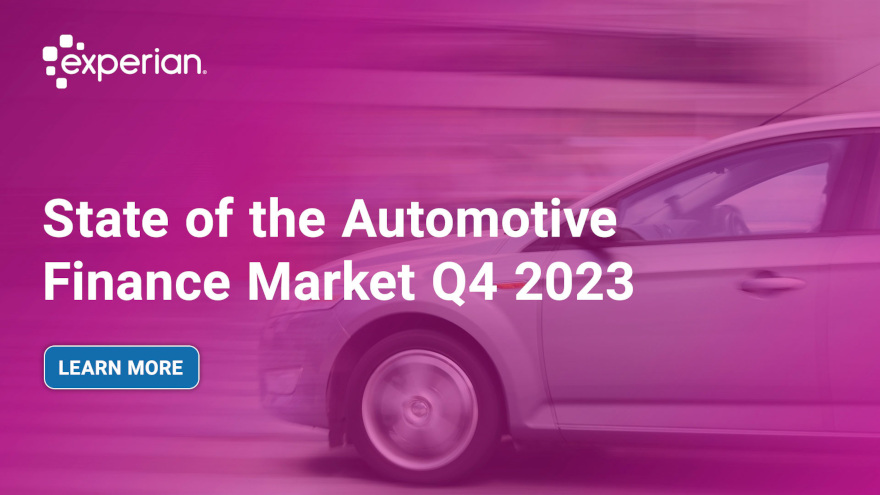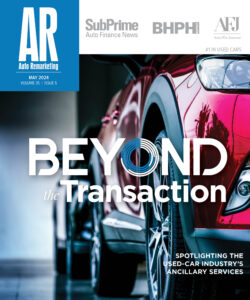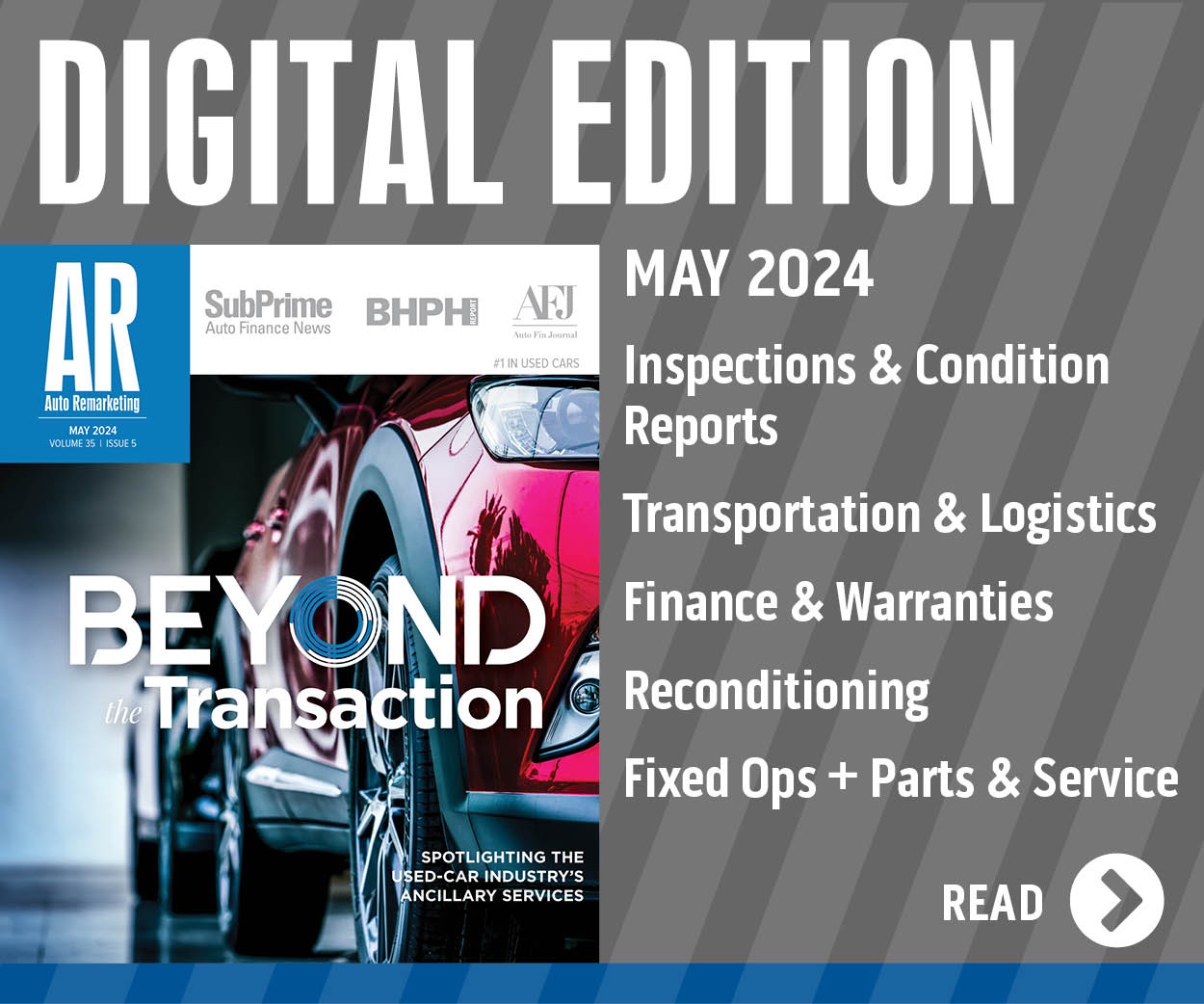Experian spots ‘natural’ reaction to higher interest rates in Q4 data

Image courtesy of Experian.
Sometimes a trend surfaces in the car business that’s “natural,” like what Experian noticed after compiling its auto finance data for the fourth quarter.
According to Experian’s State of the Automotive Finance Market Report released on Thursday, the average interest rate for new-vehicle financing reached 7.2% in Q4, up from 6.1% a year ago.
Meanwhile, the average interest rate for a used vehicle came in at 11.9%, up from 10.4% over the same period.
As a result, Experian determined that average contract terms decreased for new and used vehicles.
In Q4, the average contract term for a new vehicle dropped from 69.3 months to 67.9 months, and the average contract term for a used vehicle declined slightly from 67.9 months to 67.4 months.
However, with higher interest rates and slightly shorter terms, Experian’s data showed that the average monthly payment increased during the fourth quarter.
The average monthly payment for a new vehicle came in at $738, up from $720 a year ago, and the average monthly payment for a used vehicle was $532, up slightly from $530 over the same period.
“With interest rates remaining at elevated levels, it’s natural to see consumers continue to opt for shorter-term loans,” said Melinda Zabritski, Experian’s head of automotive financial insights.
“While consumers may spend more on their monthly payment, the overall cost of a vehicle is much lower. As the market continues to change, lenders and dealers need to watch the trends carefully to properly assist in-market shoppers,” continued Zabritski, who also is among the speakers at Cherokee Media Group’s Auto Intel Summit + National Remarketing Conference that runs April 23-25 in Cary, N.C.
Looking at market share
Captive finance companies now have a much firmer grip on the new-car market.
Experian determined captives held 61.2% of the new-vehicle finance market in Q4, up from 49.7% a year earlier.
Consequently, banks and credit unions sustained notable decreases in market share within new-car financing.
Experian said the bank share dropped 14.6% year-over-year to settle at 20.4%.
The new-car financing share for credit unions suffered an even more pronounced decrease in new-model market share, as Experian pegged the year-over-year drop at 42.2% to put the market reading for those institutions at 12.1%.
On the used side, credit unions had a bit of a rough fourth quarter there, too, according to Experian’s tracking. Analysts said credit unions still have most of the used-car finance market at 29.6%, but that’s down from 31.7% at the end of 2022.
Experian said banks’ share of used-vehicle financing slipped a bit year-over-year, as those providers finished 2023 with 26.7% of the market. That’s off from 27.1% a year earlier.
And captives gained market share in used cars, too, as Experian said the market share for OEM-controlled providers rose from 8.2% to 9.6%.
When Cherokee Media Group asked Zabritski via email about the increase, she said “captive market share growth may be attributed to an increase in CPO sales; they have a greater share of CPO compared to other lender types.”
Zabritski also pointed out that captives had similar quarterly market shares of used-car financing in 2020, with the readings approaching 13% between 2008 and 2010.
Delving into EV financing
Experian noticed electric vehicles continuing to gain retail momentum in Q4, with most of those transactions having some kind of financing attached.
Experian reported EVs comprised 8.6% of total new retail transactions during the fourth quarter, up from 7.1% in Q4 2022.
Digging a bit deeper, analysts found their data showed 44.8% of new EV retail transactions were connected to installment contracts, while 30.7% were leases.
“While EV prices are still relatively high, new incentive and rebate programs, combined with more affordable options hitting the market, have resulted in a broader range of consumers choosing EVs,” Zabritski said.
“As newer models roll out and the infrastructure continues to develop, it’ll be interesting to see how the EV market changes in the near and long term,” she continued.
According to Experian, among the top five most purchased EV models in Q4 were:
—Tesla Model Y: 31.9%
—Tesla Model 3: 17.6%
—Volkswagen ID.4: 3.9%
—Ford Mustang Mach-E: 3.4%
—Rivian R1S: 3.4%
4 other findings for Q4
Experian noted a quartet of other trends from its fourth-quarter data, including:
—The average amount financed for a new vehicle decreased $1,143 to $40,366 in Q4 2023, while the average amount financed for a used vehicle dropped $1,222 to $26,685 over the same period.
—The average credit score for new EV buyers decreased from 760 in Q4 2022 to 754 in Q4 2023, while the average credit score for new gas-fueled vehicle buyers increased from 736 to 739 over the same period.
—30-day delinquencies reached 2.5% in Q4, and 60-day delinquencies reached 0.96%.
—Prime borrowers made up more than 68% of total financing in Q4, with prime at 45.2% and super prime at 23.3%.
Experian also offered a free webinar to elaborate about the quarterly findings.

 View The Latest Edition
View The Latest Edition

